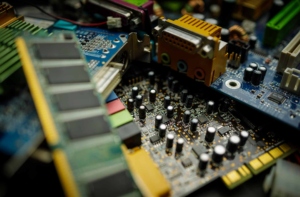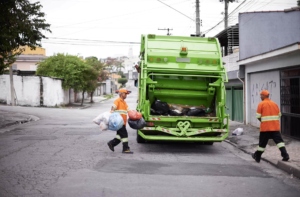Hard-To-Recycle Items Are a Thing of the Past
Hard-To-Recycle Items Are a Thing of the Past
The recycling industry has come a long way in recent years. When the world first started looking into recycling, many items were considered hard or impossible to recycle. For example, there used to be no way to recycle glass bottles if they had caps on them—the caps needed to be removed before you could throw the bottles in your curbside bin.
Since then, technology has made it easier for us all (and cheaper) by allowing us to remove the caps ourselves or pay someone else to do it for us. This increased efficiency means fewer items are hard-to-recycle today than in years past. Today, several previously obsolete items are in the world of recycling, proving that all or most things have a place in the world of repurposing and recycling.
Call your local recycling facility
If you think an item is hard to recycle, call your local recycling facility and ask them if they accept it.
If not, find out if they have a list of other recycling facilities that will accept it. If you are unsure, call the manufacturer directly because some manufacturers have recycling programs.
While many items can be easily recycled, some items are still more difficult to recycle due to their composition or size. However, advancements in recycling technology and increased awareness of the importance of sustainability have led to more solutions for handling these hard-to-recycle items.
Changing the face of hard-to-recycle items
Reducing waste and recycling are essential for the health of our planet, but not all items are equally easy to recycle. Some products, known as “hard-to-recycle” items, pose unique challenges that make them difficult to recycle. These items can include things like electronics, batteries, certain types of plastic, and more.
For example, some companies have developed processes to recycle items like coffee pods, which are made up of a combination of materials like plastic, metal, and organic matter. Other companies are experimenting with recycling items like electronic waste, which can contain toxic materials and require specialized handling.
By taking a comprehensive approach to waste reduction and recycling, we can work towards making hard-to-recycle items a thing of the past.
Hard-to-recycle items may cause extra work for recycling facilities, and that costs money
Sorting and separating hard-to-recycle items from other materials can be time-consuming, which means more labor costs for the facility.
- Transporting these materials to another location is also expensive because of their bulkiness, weight, or fragility.
- Processing them is typically more expensive than processing standard recyclables since they often require special handling or equipment not used in traditional recycling processes (like shredding).
It’s important to note that these factors are not unique to hard-to-recycle materials; they apply equally well to any difficult or costly product to process at a municipal solid waste facility (MSW).
Success stories
Contrary to the darkness shrouding hard-to-recycle items, CheckSammy has managed to mitigate this issue with a number of our initiatives, such as:
- The mannequin project, where we found a way to recycle 55,243 mannequins across the country– reduced carbon emissions and diverted metal and plastic from landfills.
- The peanut butter project was where we diverted 65 tons of tainted peanut butter from the landfill to power homes. How? A Fortune 500 food firm had tons of recalled peanut butter to be disposed of, but they were unwilling to send it all to a landfill and add to food wastage.
The takeaway
It’s important to recycle as much as possible, but some items are too hard for the average person to recycle. If you find yourself with many of these hard-to-recycle items, don’t worry! There are plenty of ways to eliminate them without contributing to the landfill.
If your town doesn’t have a facility for recycling electronics or mattresses (some do), call your local recycling center and ask what they recommend doing with these items. They might not be able to take them at all–and even if they can, they might charge extra money per item because they’re so difficult and expensive to transport safely through the system. But it never hurts to ask! And if nothing else works…
You can also donate your unwanted items instead of throwing them away or selling them on eBay like we did when we were younger (donate/sell responsibly). You’ll feel better knowing that someone else will benefit from having those things around their house instead of yours; plus, there’s always room in another person’s home for something new!
In conclusion, while hard-to-recycle items pose unique challenges, many organizations and companies are working towards finding solutions. By working together and taking a comprehensive approach to waste reduction and recycling, we can work towards a future where hard-to-recycle items are a thing of the past.
We hope this article has helped you understand what items are considered hard to recycle, and how to avoid them. If you want to do your part for the environment, you must know what materials need special attention when thrown away. If you require special assistance to ascertain if you have some hard-to-recycle items on your hands, call Check Sammy today!
See Our Services
Create a custom solution to meet your waste and sustainability goals. Contact us today!
Continue reading
Dive deeper into the CheckSammy Blog by reading one of our posts below
Feeling the Pain of Higher Resident Turnover? Apartment Junk Removal Can Help
If you’re a property manager, you’ve probably had a significant increase in tenant turnover over the last couple of years. So it’s no wonder apartment junk removal may be top of mind for you right now. There are several reasons for this shift. For one, the housing market is on fire right now. In 2020 […]
Read MoreSetting Up a Community E-waste Recycling Program
E-waste is the fastest-growing municipal waste stream according to the EPA, yet e-waste recycling isn’t keeping pace. In fact, only 12.5% of all e-waste is recycled, reports the EPA. Starting a community e-waste recycling program is a terrific way to ensure hazardous e-waste, like lithium-ion batteries, doesn’t end up in your community’s landfill. Creating an […]
Read MoreWaste Management’s Role in the Circular Economy
Establishing a waste management program for your business or community is one of the best ways you can contribute to the circular economy. Here’s everything you need to know about waste management’s role in the circular economy (and how to get involved). What Is the Circular Economy? Our current economic model is all about taking […]
Read More5 Reasons to Consider a Textile Recycling Program for Your Organization
Americans sent more than 17 million tons of textiles to landfills in 2018, a volume that is only increasing every year, reports the Environmental Protection Agency. When you think about the fact that it can take over 200 years for textiles to decompose, it’s easy to grasp how large textile waste’s contribution is to the […]
Read More8 Benefits of Environmentally Friendly Power Washing Services
If you’re into maintaining the curb appeal of your business or home, then you’ve probably heard of pressure washing. Pressure cleaning involves using high-pressure water spray to remove grime, mold, dust, paint, mud, and other junk from objects or surfaces. Many people worry that pressure washing isn’t good for the environment, but this couldn’t be […]
Read MoreWhy Our Customers Love Our Full-Service Junk Removal
If you’re looking for full-service junk removal services, you’ve come to the right place. CheckSammy is a one-stop shop for all your junk removal and sustainability needs. From our affordability, simplicity, and unrivaled turnaround times to our innovative sustainability solutions and patented technology and data, it’s clear why some of North America’s biggest companies choose […]
Read MoreTips for a Stress-Free Move From An Eco-Friendly Junk Removal Company
What does an eco-friendly junk removal company know about moving? Quite a lot, actually. Moving can be an especially chaotic time. You have to pack everything up, get rid of unwanted items, clean your property, load everything up, and move your things to your new location. That doesn’t even include the unpacking and resettling period. […]
Read MoreCollege Junk Removal Tips for Student Move-In Day
As the new school year gears up, colleges across the country are looking for ways to clean up their campuses before the new year begins, and many of them want to do so sustainably. College junk removal isn’t easy, though, especially around move-in week—and when trying to do so sustainably. As students move in and […]
Read More8 Items Hospitality Businesses May Not Know They Can Recycle
One hotel guest produces 2.5 pounds of trash every single day. Just a single hotel room produces around one cubic yard of waste each month, which totals 200 gallons of waste per room every month. Most of this waste goes straight to the landfill, even though research shows that up to 60% of it is […]
Read More











